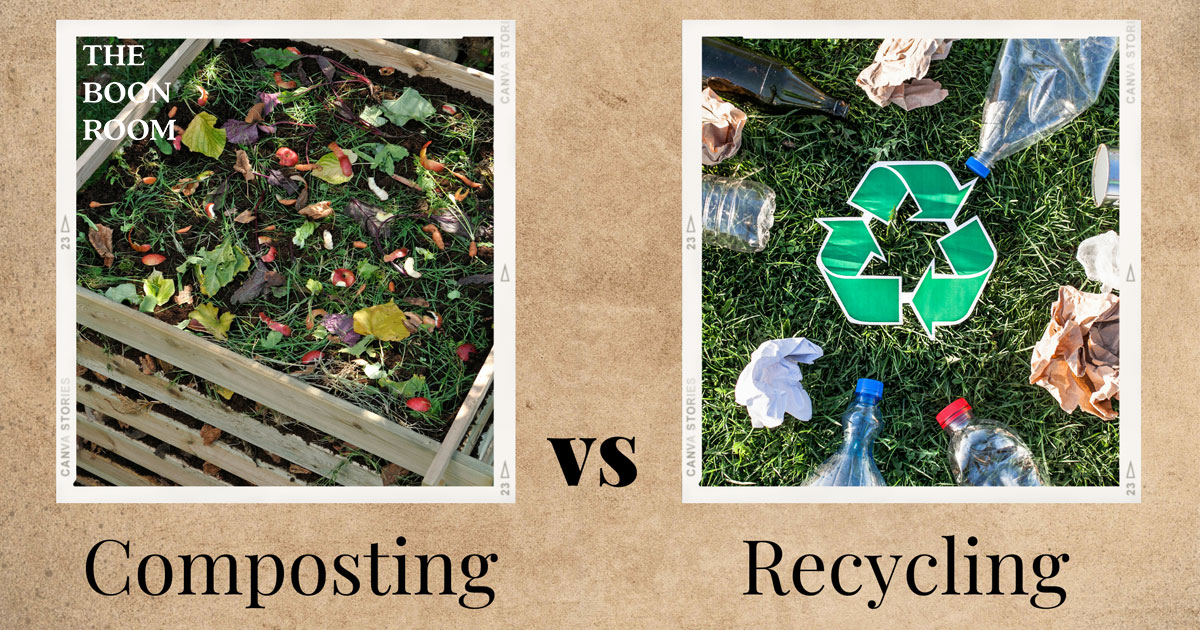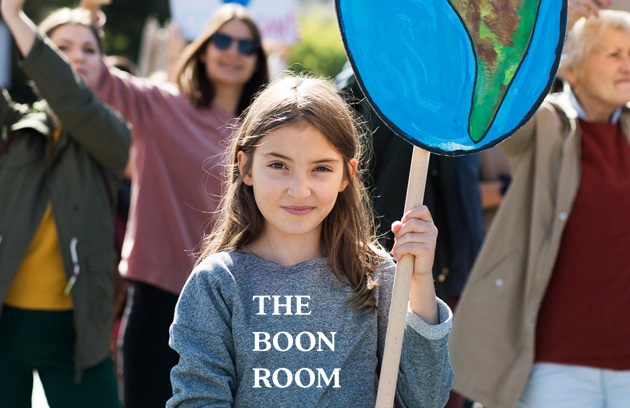For those new to sustainability and eco-friendly methods, there can be some confusion when it comes to composting versus recycling. They have many similarities, but their differences may help you determine which is best for what you are trying to achieve.
Really, both activities are important. And, technically composting is a form of recycling… keep reading to discover the differences between composting vs. recycling.
Recycling involves converting used consumer materials and their waste back into usable materials and new objects. For you, the consumer, the act of recycling often consists of ensuring any recyclables are set aside to be recycled instead of traveling to the landfill or even reusing the items in another way yourself. For those in the recycling industry, recycling involves collecting recyclable materials, processing them for reuse, and sometimes even recovering energy from recycled materials.
Composting also involves setting aside reusable waste so that it can be repurposed rather than collected with the trash. Specifically, composting is the process of converting organic waste materials like food waste, leaves, used paper and cloth, and even manure into useful fertilizer. At its most basic, composting can consist of strategically collecting certain types of organic waste in a pile or heap so that microbes can break it down into nutrient-rich matter.
Composting Vs. Recycling
Are composting and recycling the same process, or should they be considered two separate strategies to boost sustainability?
Similarities Between Composting and Recycling
As you may have assumed after learning what composting and recycling are, they actually share many similarities.
- Both recycling and composting aim to reduce the amount of waste that ends up in the planet’s landfills, thereby reducing the impact of humans on the environment.
- Both processes can be done at homes or businesses. Every day, individual consumers can recycle paper, plastic, aluminum, and glass waste and compost organic waste, while companies can do the same on a larger scale.
- Both utilize resources to create something new. Recyclable papers, plastics, metals, and glass can be re-formed into new materials and products via the recycling process, while organic waste is transformed into fertilizer via the composting process.
- Both processes can benefit your home, your business, and the world you live in–and they certainly aren’t mutually exclusive.
Differences Between Composting and Recycling
While composting and recycling share many similarities, it’s important to remember that they are two different processes.
They can help you achieve somewhat different goals.
- Composting is most often used to allow organic materials the time to decompose before use as agricultural or personal fertilizer materials to produce nutritious soil, while recycling prepares mostly non-organic materials for reuse in manufacturing.
- Composting is a completely organic process that typically requires no complex machinery to achieve, while recycling is an industrial process that requires the use of machinery.
- Composting can be a lengthy process that is susceptible to contamination which can lower the quality of the compost, while recycling can take place more rapidly.
- Composting takes place using only organic materials like food scraps, yard waste, and some natural paper and cloth types. Recycling can accommodate a wider variety of material and product types, like most papers, plastics, glass, and metals, and is better equipped to handle the variety of materials and chemicals often used on a single product.
Benefits of Recycling
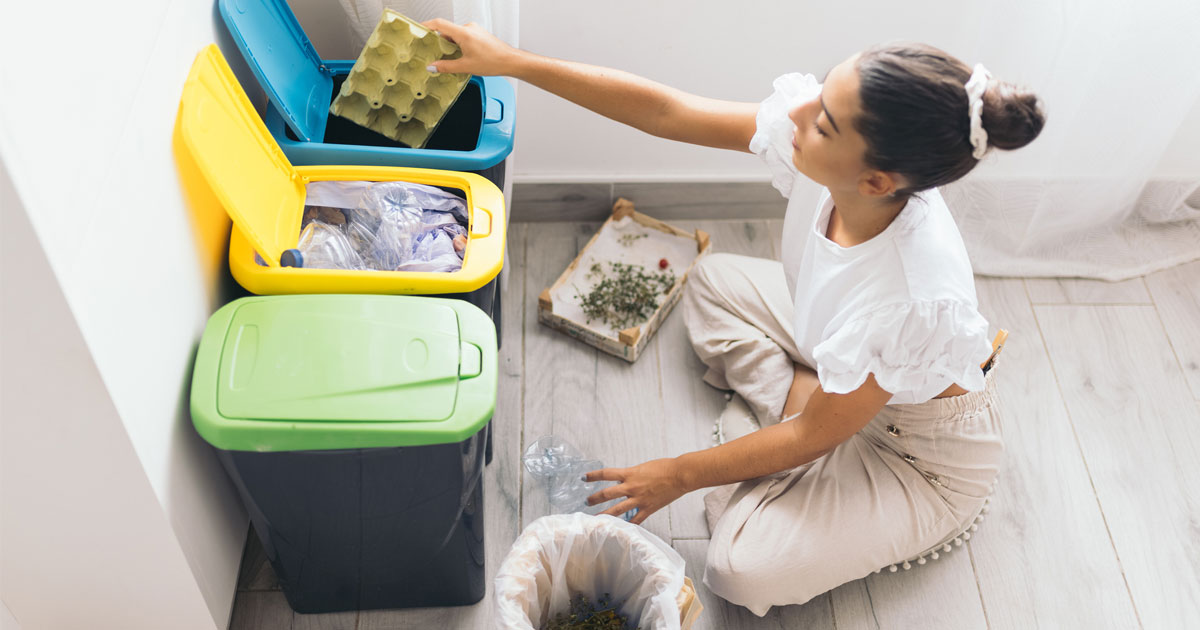
There are several benefits associated with the commitment to recycling, whether on an individual or corporate level. Recycling helps conserve raw materials as well as the natural resources needed to produce manufacturing materials. Recycling also reduces the need to go through the process of harvesting the source material, further reducing the impact on our environment.
Recycling also helps to limit the number of materials that find their way into a landfill. Landfills can emit toxic levels of methane and produce runoff that contaminates the soil and water. Reducing our contribution to landfills is an essential step in combating these issues.
What Can I Recycle?
After you choose to recycle, the next hurdle is often understanding what you can and can’t recycle. You’ll want to make sure that you are paying attention to the instructions that come from your recycling partner or local provider. For example, not all providers will accept all types of recycling materials. In general, most will accept cans, recyclable plastics, paper, and glass, but that is not always the case.
Keep these factors in mind:
Check Your Recycler’s Preferences
Before recycling, check your recycler’s preferences. For example, your recycler may request that all glass and plastic containers are rinsed before recycling. Similarly, some recyclers prefer that cardboard items are broken down before they will accept the material.
Check Your Plastics
Keep in mind that certain plastics may not be recyclable. Many major brands are doing their part in providing clear labels that indicate whether their packaging can be recycled. In most instances, you’ll be able to find the recycling symbol on the item itself. You may also see a number that coincides with a certain recycling process, and you’ll need to determine whether your recycler has the correct equipment and processes to handle it. Questionable materials may include animal food bags or certain food storage bags, such as those commonly found in the frozen food aisles.
Coffee pods are currently a hot-button recycling issue and there is a lot of uncertainty when it comes to understanding if coffee pods are recyclable. They are, without a doubt, convenient to have and can be found in many homes, offices, and waiting rooms. The good news is that most types of coffee pods can be recycled. You’ll first need to make sure to follow instructions set by your facility, such as removing the foil and cleaning out the coffee grounds. Then, ensure that the facility accepts that plastic type. Some companies even offer a return program depending on your brand.
Benefits of Composting
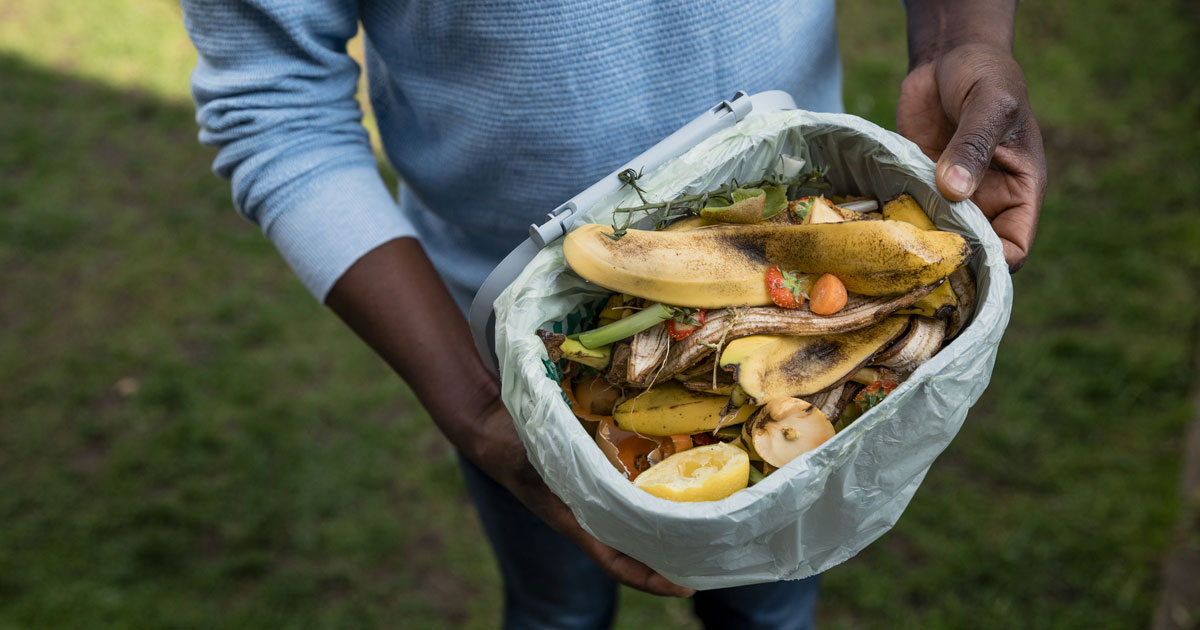
There are several benefits associated with composting. Composting allows for natural and organic items to decompose in their own time. As mentioned, this decomposed material becomes a biodiverse soil additive, ideal for improving moisture retention for your garden or larger agricultural projects. Composting also helps to minimize our reliance on chemical fertilizers that can be harmful not only to the soil but to the produce grown from that soil which then enters our bodies.
Composting, like recycling, can help reduce the volume of material that gets sent to landfills. This helps reduce waste and prevents serious environmental concerns such as harmful runoff and water contamination. Composting is especially beneficial for the food service industry. Every day, a large volume of food is prepped, which creates a massive buildup of food scrap waste. This material can quickly build up in trash bags, which often end up in landfills. Food scrap pickup services can compost this waste and put it to good use in local projects.
What Can I Compost?
Commonly composted items include:
- Non-animal food scraps like fruit and vegetable trimmings, breads and grains, coffees and teas, and even spices
- Certain yard scraps like grass trimmings, leaves, and small brush clippings
- Organic refuse like herbivore pet bedding, dryer lint, and dustpan waste
- Shredded, non-glossy paper
- Thin cardboard
Keep in mind that denser objects like paper, nut shells, pine straw, dried pasta, wood chips, and more will require quite a while to compost–maybe even a season or two. Also, avoid composting larger branches or any animal products like meats, animal grease, bones, and pet waste. When done right and given the proper amount of time, even the simplest composting project works well on both an individual and business level. This volume of home or business waste can convert to compost for use in a small garden or a larger neighborhood agricultural project.
Composting or Recycling?
Composting and recycling are both important activities you can participate in to help reduce the negative impact we have on our environment. Both have their own merit and can serve to boost our efforts towards sustainable living. Most materials you use every day are either fit for recycling (plastics, metals, glass, and paper) or composting (food scraps and paper). As a result, neither composting nor recycling is always better.
However, materials like paper may be fit for both recycling and composting, and you may be faced with the decision of whether you should compost or recycle. When you need to determine which method would be best for your needs and the environment, recycling often wins over composting. Recycling material has a faster turnaround. When you recycle something, it can quickly and easily be turned into something else while utilizing minimal resources. Meanwhile, composting is a time-consuming process and can take more resources before the compost can be used once again. Still, many people choose to compost paper packaging that harbors food residue, which is not suitable for recycling.
Recycling can also pose less of a contamination risk. The main goal of composting is to use raw materials to improve environmental soil. However, items that can technically be composted often include chemicals that could be counterproductive. For example, while a newspaper could be recycled or composted, the ink used could pose a greater issue to the environment as compost than if it were recycled.
Is Composting Part of Recycling?
In a sense, yes. Composting and recycling are two components of a larger movement to decrease our reliance on new materials that can negatively impact the environment. Both composting and recycling look to eliminate resource use during the creation or manufacturing processes. Composting and recycling are both activities that can reuse raw materials while using fewer resources and preventing materials from going to a landfill.
Can you recycle food?
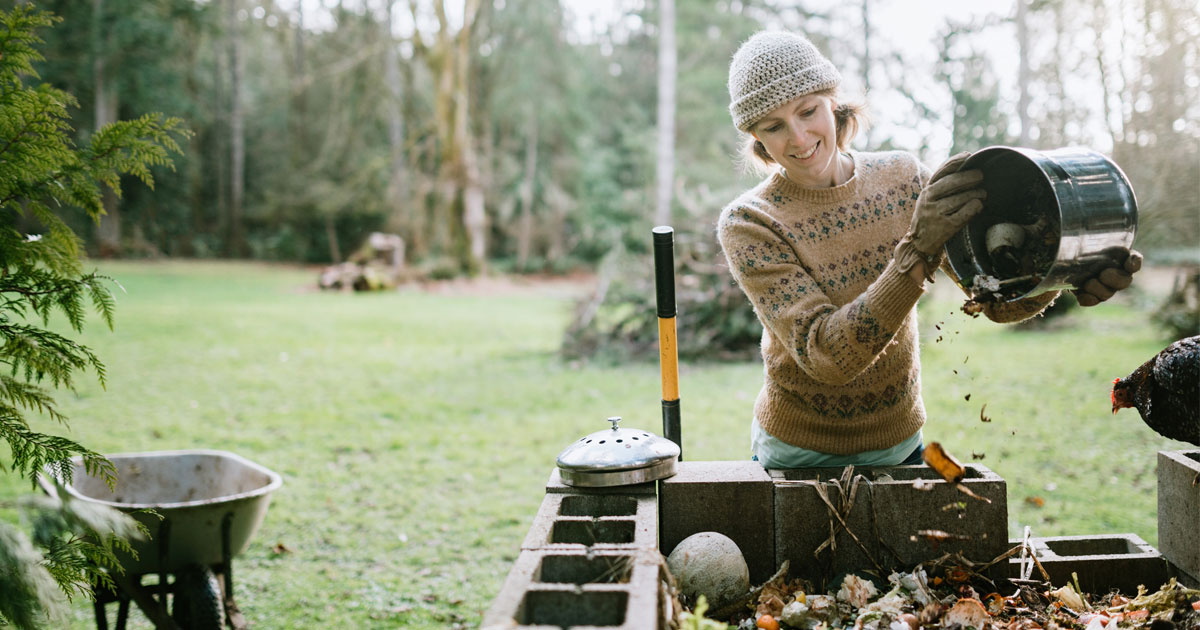
Yes, you can recycle food. In fact, that’s what composting really is.
Rather than simply throwing it away in the trash, composting is a great way to turn food waste into a valuable resource. Composting is the process of breaking down organic materials like food scraps and yard trimmings into a nutrient-rich soil-like material. This recycled material helps to fertilize plants, increase water retention in soils, and improve soil structure for better root growth.
Additionally, it can be used as mulch or added back into gardens and lawns. To start composting at home, all you need is an outdoor space like a yard or balcony where you can store your compost bin or pile. Composting is also easy on the budget as you don’t need to buy any special equipment; household items such as kitchen pans and garden tools will do just fine.
So, if you think about it, composting not only helps reduce your carbon footprint, but it can also save you money on fertilizer and other gardening supplies!
When it comes down to composting vs. recycling, both are great options for working towards sustainability and reducing your carbon footprint. While neither is better than the other, recycling does allow more material options and has a faster turnover time. Recycling can also be easier to participate in for individuals who want to make a difference but may feel intimidated by the stricter guidelines for successful composting.
Both recycling and composting are great methods for keeping materials and products out of the landfill, thus improving our ecosystem. Finding ways to be sustainable can not only be a rewarding activity for yourself but also for your business or family; teach kids about going green.
Whether Composting or Recycling, Get Involved
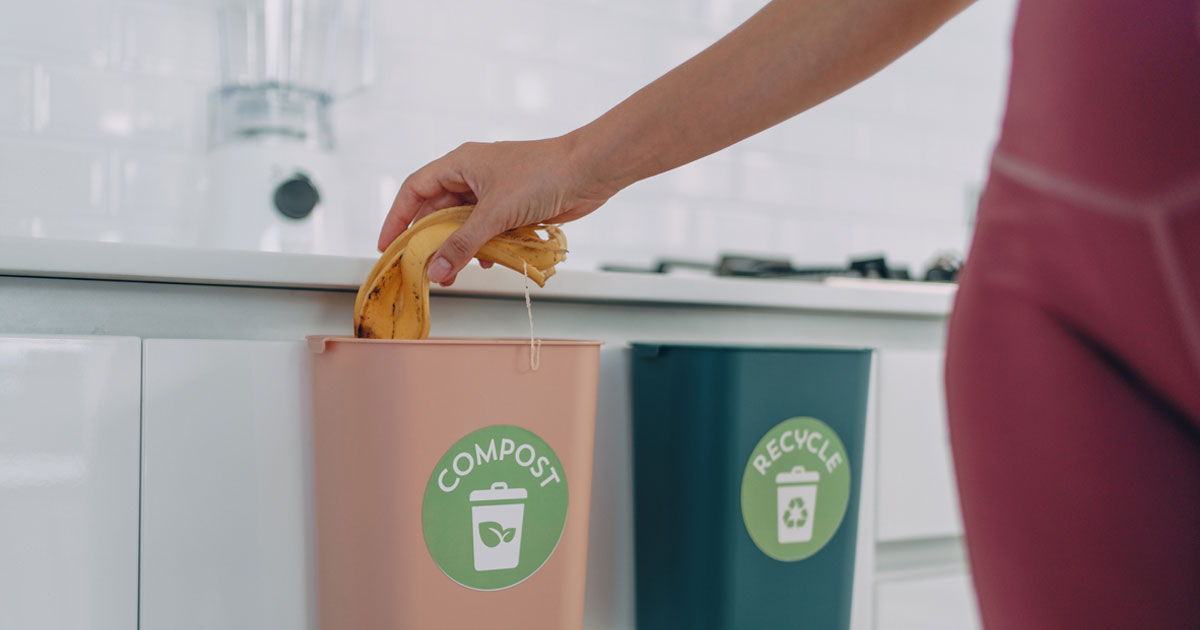
By working together, we can make a real difference in helping conserve our planet’s resources. Through simple acts like rinsing out plastic bottles and collecting food scraps to be used for community gardens, we can all do our part in ensuring that the environment remains sustainable. Business owners are encouraged to look at their daily operations and think of ways they can reduce their environmental impact – from reducing the amount of single-use plastics used to investing in energy efficiency initiatives.
Individuals are also encouraged to take part in waste reduction campaigns, volunteer at local recycling centers, or even participate in beach clean-ups. It’s also important for us all to spread awareness about how simple it is to recycle and compost, as well as the benefits it brings both locally and globally. Together, we can create a more sustainable future for generations to come!
Jenny Weatherall is the co-owner and CEO of Eminent SEO, a design and marketing agency founded in 2009. She has worked in the industry since 2005, when she fell in love with digital marketing… and her now husband and partner, Chris. Together they have 6 children and 3 granddaughters.
Jenny has a passion for learning and sharing what she learns. She has researched, written and published hundreds of articles on a wide variety of topics, including: SEO, design, marketing, ethics, business management, sustainability, inclusion, behavioral health, wellness and work-life balance.
